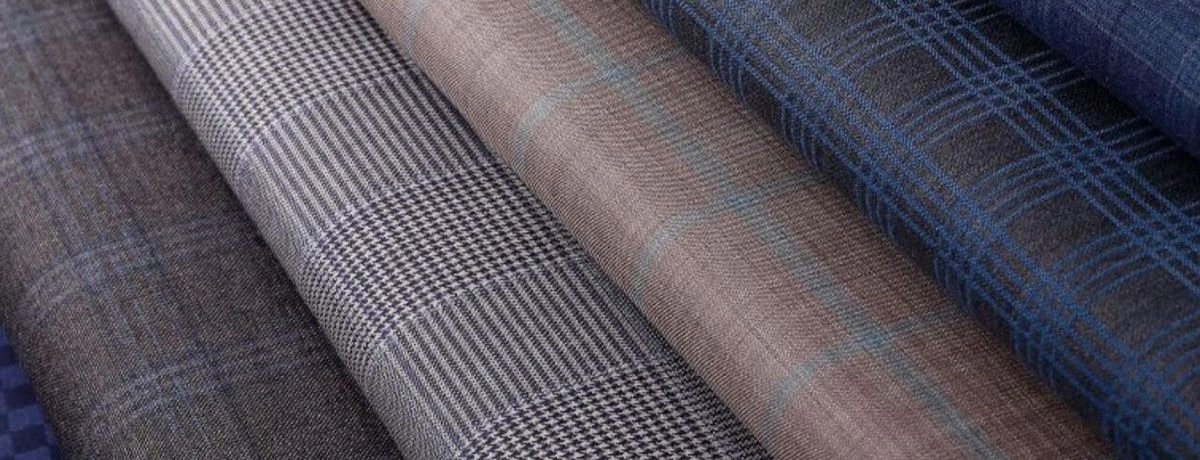What's the Best Fabric of Suits?

The fabric of a suit is key to a garment that looks good, feels comfortable and meets the wearer’s needs. Whether you’re a fabric buyer, wholesaler or store owner, knowing the characteristics of different fabrics will help you make informed decisions. This guide covers the basics of choosing suit fabrics, from assessing needs to the characteristics of the most popular materials.
What to Ask Before Choosing a Suit Fabric
Before you choose a suit fabric, ask: What’s the Occasion? How Often Will You Wear the Suit? Do You Want Texture or Pattern? What About the Weight of the Fabric?
Suit Fabric Weights
How much the fabric weighs measure fabric weight per square meter (in grams). Here’s a quick guide:
-
Lightweight (Under 230g): Good for summer suits and warmer climates. Perfect for hot weather, breathable fabrics like cotton and linen are comfortable and elegant.
-
Midweight (230g to 290g): Good for year round wear.
-
Heavyweight (Above 290g): Warm and structured, perfect for winter suits.
Knowing the fabric weight ensures the suit is comfortable and adaptable to climate and occasion.
Suit Fabric Materials
|
Fabric Type |
Key Strengths |
Drawbacks |
|---|---|---|
|
Wool |
Natural warmth, premium texture |
Expensive, requires special maintenance |
|
Cotton |
Breathable, lightweight |
Prone to wrinkling, less formal appearance |
|
Linen |
Lightweight, perfect for summer suits |
Wrinkles easily, less versatile for formal wear |
|
TR Suiting Fabric |
Durable, wrinkle-resistant, affordable |
Moderately breathable compared to natural fibers |
1. Stretch Wool Suiting
This modern take on classic wool combines the warmth, breathability and versatility of wool with added stretch. Stretch wool is loved for its comfort and ability to look polished, makes it a popular choice for office suits.
2. Worsted Wool
The workhorse of suit fabrics, worsted wool has a smooth texture and luxurious finish. Durable and wrinkle resistant, it’s perfect for business suits and year round wear.
3. Wool Twill
Diagonal weave, wool twill has a subtle texture that adds depth to a suit jacket fabric. Medium weight and the weave makes it versatile and durable.
4. Cotton Twill
For a more casual and breathable option, cotton twill is a lightweight choice. Crisp texture and relaxed look makes it perfect for semi-formal or summer suits.
5. Polyester-Viscose Windowpane
Affordable and durable blend, perfect for creating patterns like windowpane checks. Low maintenance and wrinkle resistant, good for daily suits.
6. Linen
Lightweight and breathable, linen is the fabric of choice for a beautiful suit, especially for summer. Wrinkles easily but its relaxed look is highly desirable for casual events.
7. Linen Blend
Combines the benefits of linen with improved durability and reduced wrinkling, perfect for those who love the look of linen but need more practicality.
8. TR (Polyester Viscose Blend)
TR suiting fabric can be produced in various colors, patterns, and weights, making it easy for manufacturers to cater to these emerging trends.
9. Satin
Used for lapels or evening wear, satin brings shine and elegance to formal suits. Not used for entire garment but adds polish to select parts.
10. Velvet
The ultimate luxury, velvet has a plush texture that turns any suit into a showstopper. Used for jackets meant for evening wear or special occasions.
Suit Fabric Tips
When choosing a fabric for a great suit, always consider the wearer’s needs. Know their weight, comfort and style preferences. Check the fabric maintenance requirements, some (like silk) requires special care, others (like polyester blends) are low maintenance.
Retailers and wholesalers should also keep an eye on market trends to stock the right fabric, to ensure the options align with the season. Wool and cotton blends are always staples, but linen and velvet are seasonal.
Suit Up
Choosing the right coat suit material or suit jacket fabric means knowing the different suiting fabrics and balancing practicality and style. From durable worsted wool to luxurious silk blends, there’s a fabric for every occasion and wearer.
For retailers and wholesalers, offering this variety means your customers are covered. Versatility, affordability and premium quality is key to pleasing your customers.
By knowing the characteristics of the fabrics for suits and asking the right questions before you decide, you’ll get comfort and elegance in every suit.
